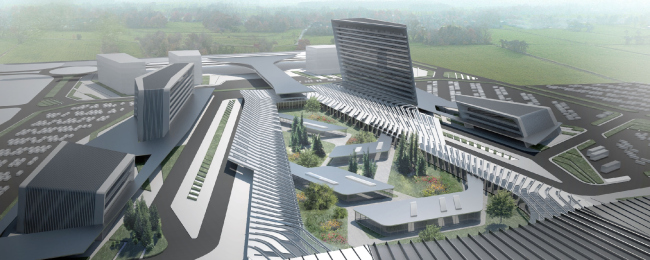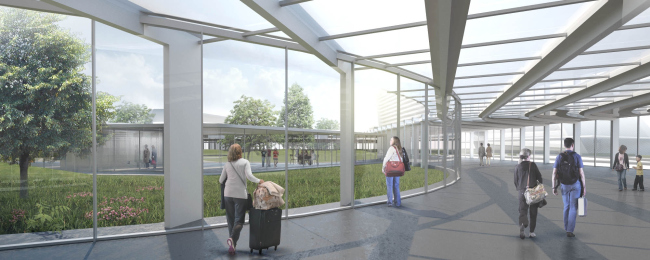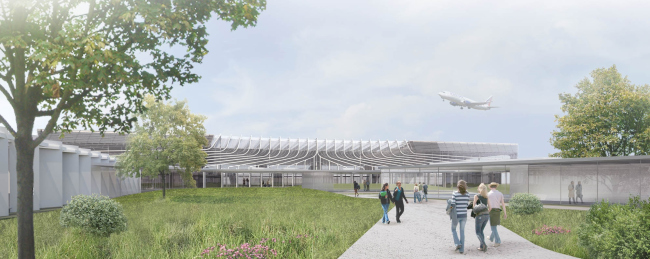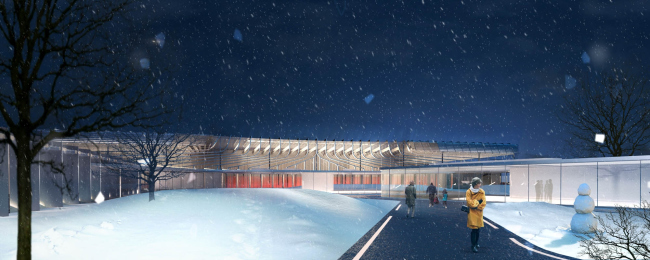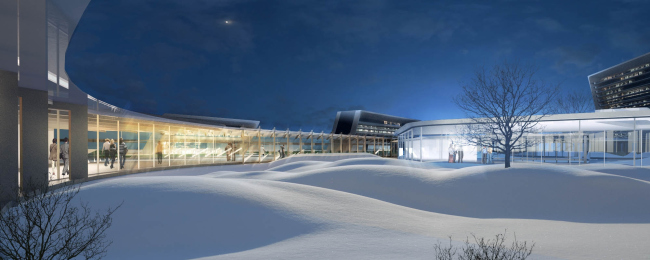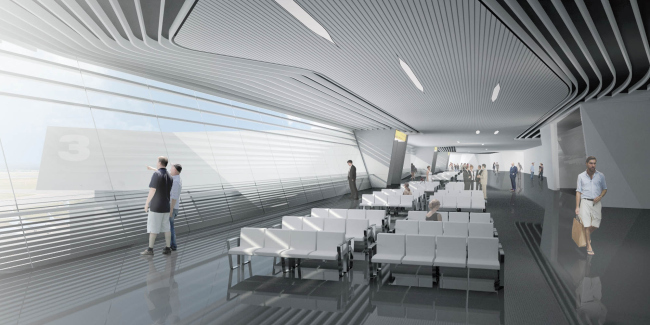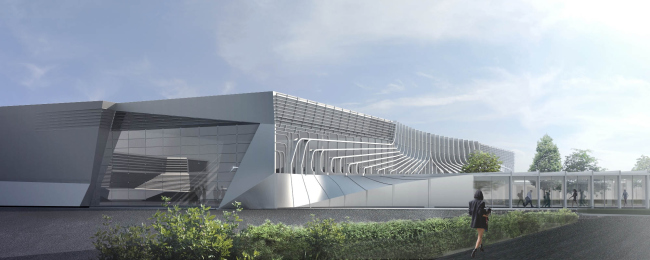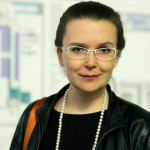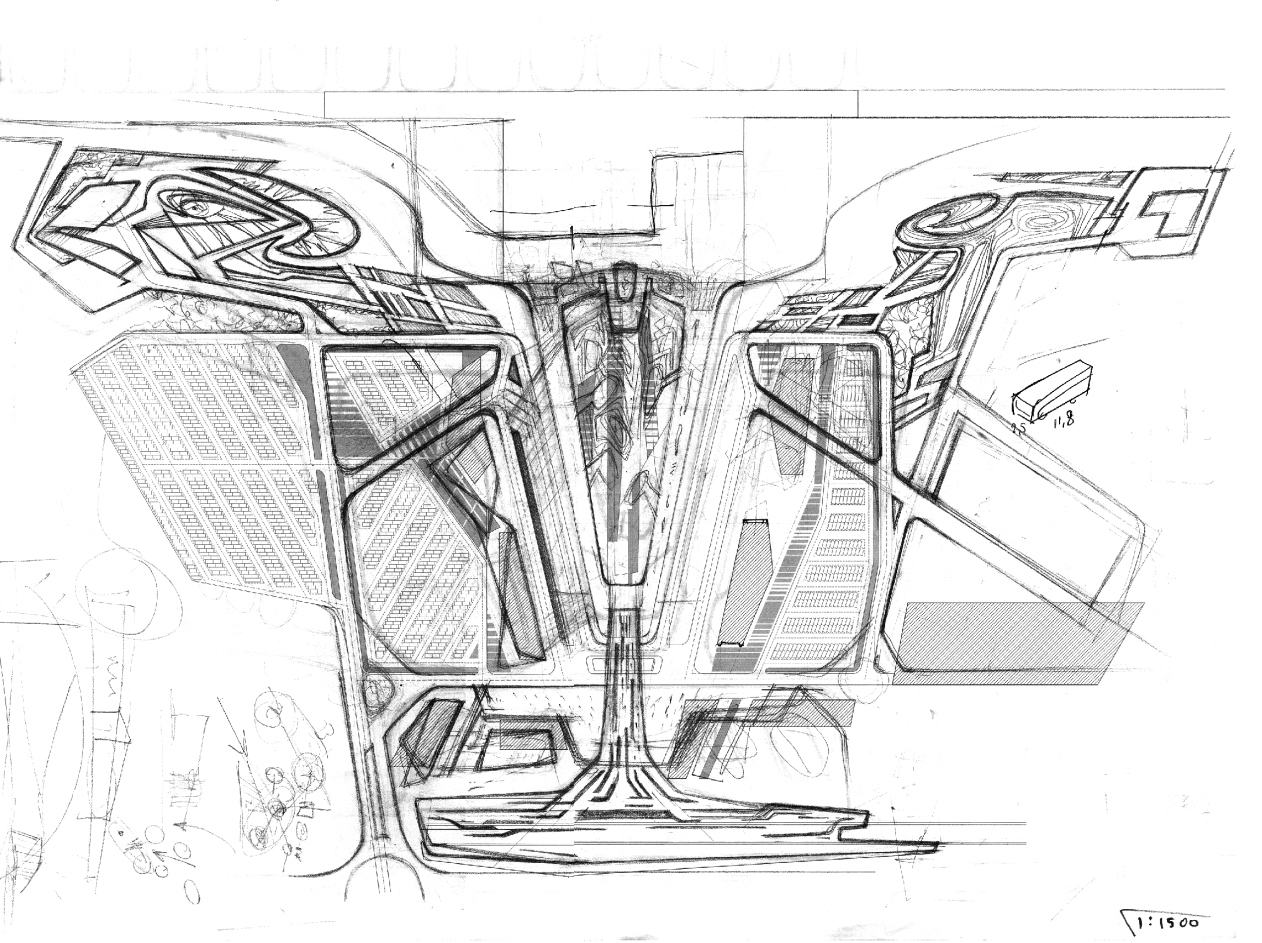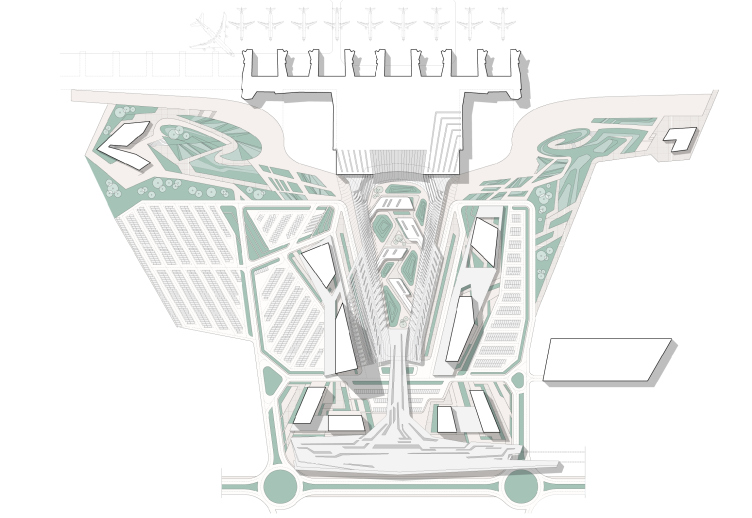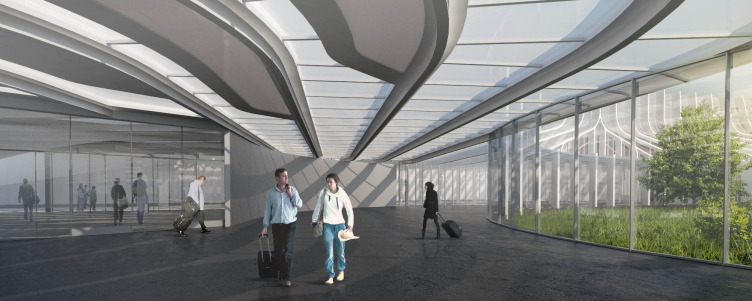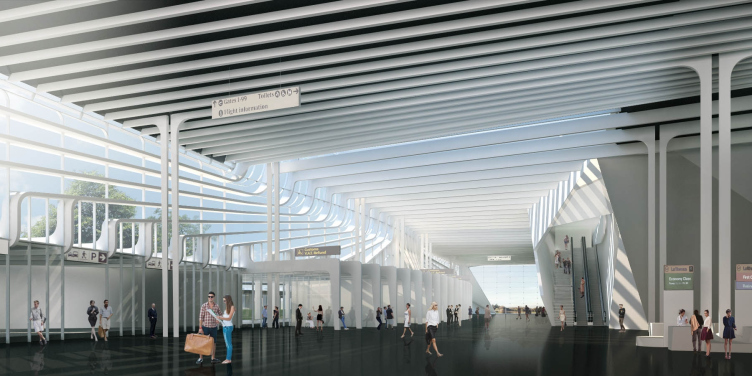One of the participants of the international competition for the best
project of "Yuzhny" Airport in the city of
"Our primary objective was to help the passengers to find their way around the airport as easily as possible - Levon Airapetov shares - This is why what we tried to do was connect all the points of entrance (on foot, by train or by car), arrival, and departure into some sort of a single "smart" rational system, a machine that surrounds the park situated in its center, this park being the "visiting card" of this territory.
The way of the passengers, both arriving and departing, goes along the transparent galleries straddling the park. Into the park territory, the galleries shoot the glazed volumes of public premises: cafes, shops, and lounges. Thus, the passengers, while being inside the technogenic landscape, are at the same time always in contact with the nature. On the outside of the galleries, we placed the volumes of the office buildings and the hotels, deliberately making them "conspicuous", towering over the landscape. We built the volume of the airport around the dichotomy of two contrastive elements: air and earth. The streamlined curvilinear shape of the galleries reminds one of the streams of turbulent air - people come here to fly away, and the symbolic "air streams" pick them up and carry them towards their destinations. The more balanced and reserved volume of the terminal and the last point before the take-off symbolizes the earth".
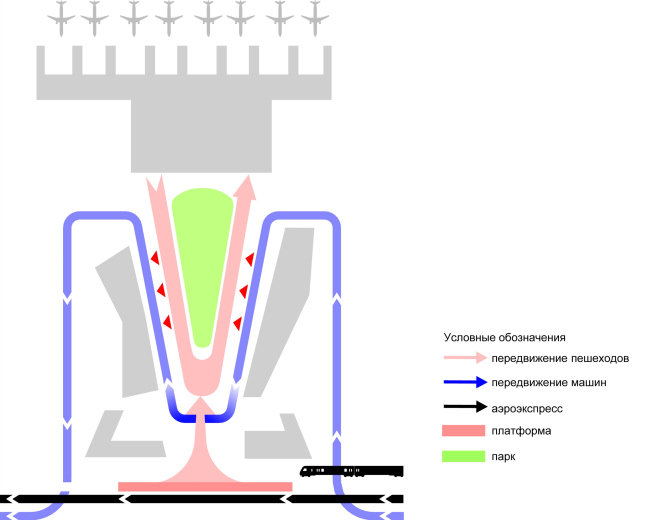

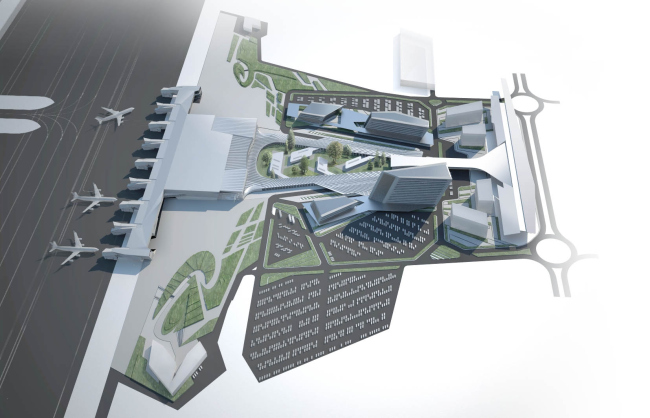
The plan of the various motion flows became indeed the main theme of the project. The architects were so much carried away by the idea of organizing the passenger flows that they turned it into a dramatic pattern that looks reminiscent of the mask of the pagan "air god" or ornaments of the symbolist artists of the early ХХ century. Upon a closer examination, one can see on the master plan the nose, the eyes, the forehead, and even some semblance of a crown (its teeth being the planes receiving their passengers). What is interesting is the fact that the intricate pattern not only matches the bulging bands of the glass galleries but also the open-air trails of the park. On the plan, the volumes of the cafes and shops that intrude the park territory resemble the imaginary deity's war paint, while the whirls of the trails on the sides look like the creature's hair.

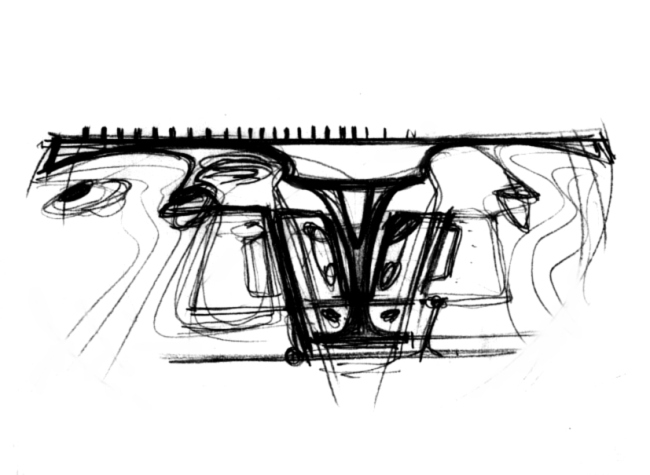
Such a transition from the rational planning of the flows to the
breathtaking graphics of the plan might even look offensive from a classical
modernist standpoint, but then again, it perfectly matches the idea that the
architects proposed - one of symbolization of earth/air: the intricate pattern
that shows on the plan endows the project with extra meaning and hidden
aesthetics, "half-legally" entwined into the pragmatic plan of
organizing the passenger flows.
The pattern of the plan is only visible from above, though. From the inside, the passengers would have gotten a network of glass galleries and pavilions installed into the natural habitat of the park, open to the green surroundings and flanked by trees on all sides (the architects placed the green plants wherever possible). The complex "turbulent" pattern of the galleries and their offshoots allowed for the maximum mutual penetration of the technogenic structure of the airport and the park environment, tying the two elements in a single whole.
